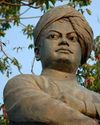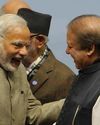THE INDIAN ADMINISTRATIVE SERVICE NEEDS AN URGENT REJIG. THE KEY TO SPEED AND EFFICIENCY LIES IN PUTTING AN END TO A GENERALIST APPROACH AND IN GOING FOR A NEW SERVICE.

MANY MEMBERS of the Indian Administrative Service (IAS), past and serving, are likely to read this. In order to avoid the usual IAS ploy of “how many centuries have you scored” to pooh-pooh critiquing, let me set out my qualifications at the very start.
At one time, no fewer than eight of my close relatives, including my father and his brother, and my brother-in-law, were in the IAS. My brother and cousin were in the Indian Foreign Service (IFS). And many others were in the other services. My closest friends from school and college have been members of the IAS, Indian Police Service (IPS) and the Allied Services. So, while I may not have worn the shoe, I do know how it fits.
THE INDIAN CIVIL SERVICE (ICS)
The IAS is the successor service to the ICS, which was meant to serve the British Empire in India. Until the 1870s, British administrators comprised mainly of freebooters from England, who ran things with the help of the military.
But, after 1860, when governance was taken over by the British government, there was a dramatic improvement in the quality of officers, who were now drawn overwhelmingly from Oxbridge. This was the first generation that absorbed the liberal values of fairness, equity and justice. Their story has been told by many, but the most readable account is in Phillip Mason’s The Men Who Ruled India.
This story is from the December 2017 edition of Swarajya Mag.
Start your 7-day Magzter GOLD free trial to access thousands of curated premium stories, and 9,000+ magazines and newspapers.
Already a subscriber ? Sign In
This story is from the December 2017 edition of Swarajya Mag.
Start your 7-day Magzter GOLD free trial to access thousands of curated premium stories, and 9,000+ magazines and newspapers.
Already a subscriber? Sign In

Refuging Progess
There is a well-orchestrated global conspiracy to deny scientific and technological developments from the West to Third World countries.

The Monk Of Science
Vivekananda believed that Religion should be subjected to scientific methods of investigation. The third and concluding part of our series on the Swami and his views on science.
The Next Step
Indian technical manpower can be trained for high-value-added emerging services in the era of mass commoditisation of hardware.
The Threat Of Autarchy
The force of globalisation is an irreversible reality, and it is countries like India and China that will nurture it going forward.

Neanderthals: The Womb Of Caves
Recent discoveries indicate that Neanderthals may have had a rich inner life, including symbolic thought. Indeed, they may have been the progenitors of human religions.

Getting India's World Right
Incremental concessions will get India nowhere with Pakistan and China. What we need is a classically conservative foreign policy, based on realism.

The Hesitant Orbit
In order to march boldly ahead into the deep space, New Delhi must work towards building a station, boost its techno-economic planning and use the Indian Space Research Organisation smartly.

Nudges And Narratives
The debate surrounding Sanjay Leela Bhansali’s Padmavati brings India a complex network of portraits within a cultural world-system.

The Spell Of Specialisation
THE INDIAN ADMINISTRATIVE SERVICE NEEDS AN URGENT REJIG. THE KEY TO SPEED AND EFFICIENCY LIES IN PUTTING AN END TO A GENERALIST APPROACH AND IN GOING FOR A NEW SERVICE.
The Great Gamble
With demonetisation, the prime minister has taken a huge risk— both economic and political. He must succeed, because this move could transform both our economy and our society.